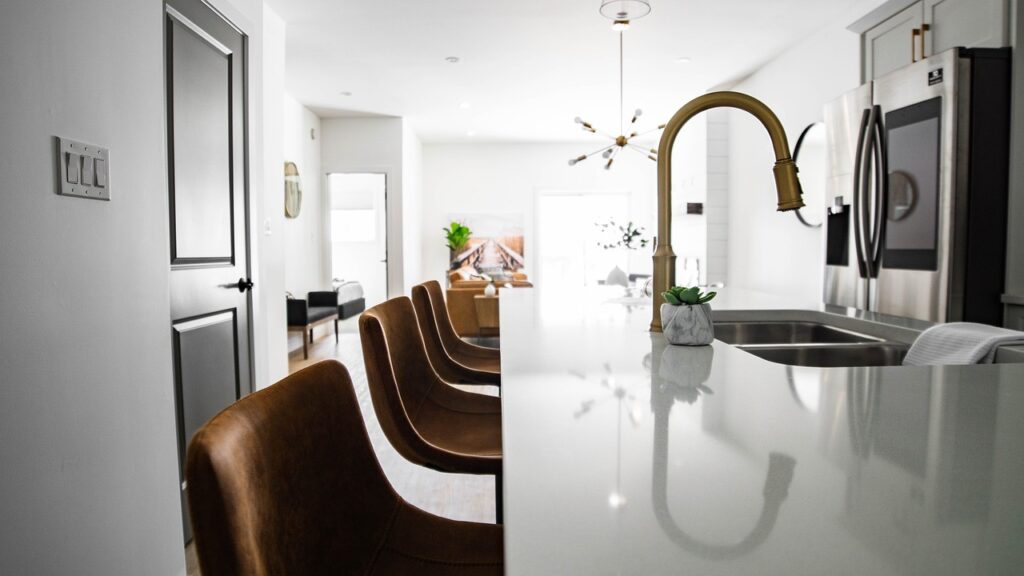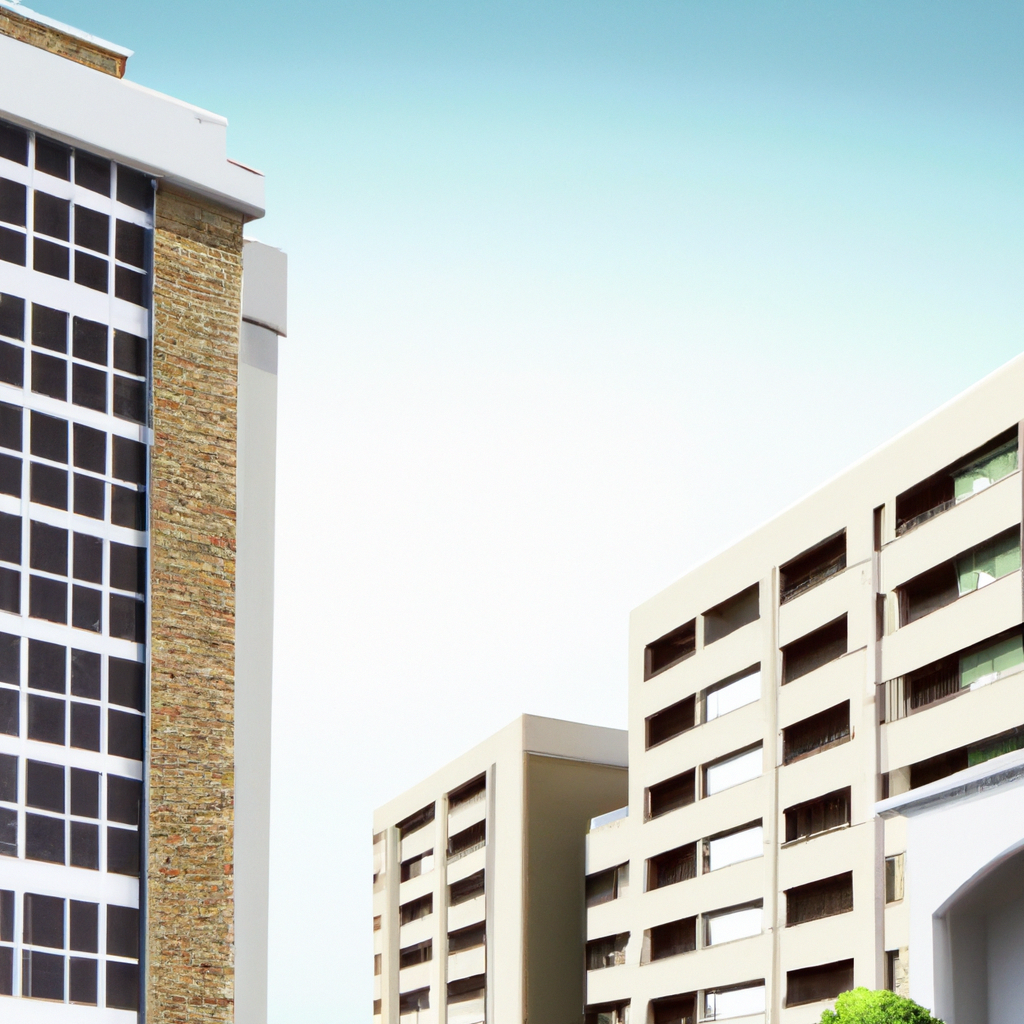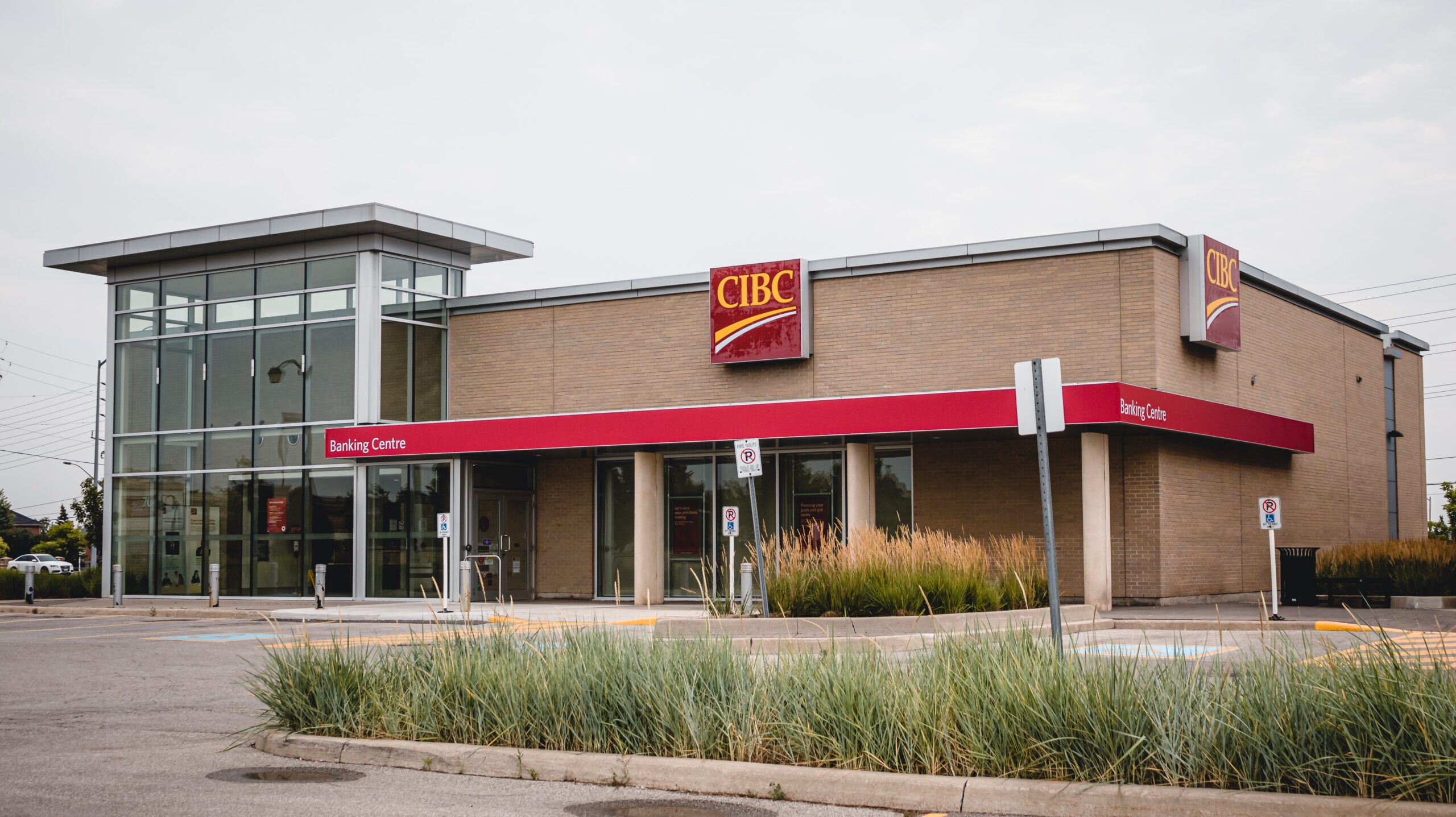How Can I Maximize Rental Income From My Investment Property?
October 15, 2023 | by Catherine Jones

Are you looking to make the most out of your investment property? If you’re wondering how to maximize rental income, you’ve come to the right place. In this article, we’ll dive into some tried and tested strategies that can help you boost your rental income and make your investment property even more lucrative. From smart financial planning to enhancing property appeal, we’ll explore various aspects that can help you achieve your goal. So, let’s get started on the journey to increase your rental income and make the most of your investment property.

Setting the Right Rent Price
Conducting Market Research
When it comes to maximizing rental income from your investment property, one of the key factors is setting the right rent price. Conducting thorough market research is essential in order to determine a competitive and profitable rental rate. Start by researching rental prices in your area for similar properties. Look for properties that have similar features, amenities, and location as your own. Check online rental platforms and consult with local real estate agents to gather information on current rental rates. By understanding the market demand and rental prices in your area, you can set a rent price that is attractive to potential tenants while also ensuring that it covers your expenses and generates a profit.
Consider Location and Amenities
The location of your property and the amenities it offers play a crucial role in determining its rental value. Properties located in desirable neighborhoods with good schools, easy access to amenities, and convenient transportation options tend to command higher rental prices. Similarly, properties that offer attractive amenities, such as a swimming pool, gym, or parking facilities, can justify a higher rent price. Take into account the location and amenities of your property when setting the rent price, as these factors can significantly impact the rental income you can generate.
Evaluate the Property’s Condition
The condition of your property also plays a significant role in setting the right rent price. Take a thorough evaluation of your property, considering both its interior and exterior condition. Identify any necessary repairs or maintenance that may be needed to make the property attractive to potential tenants. Consider factors such as the age of appliances, the condition of flooring and walls, and the functionality of plumbing and electrical systems. By addressing any issues and ensuring that the property is in good condition, you can justify a higher rent price and attract quality tenants.
Assess Comparable Rental Properties
To get a better understanding of the rental market in your area, it’s important to assess comparable rental properties. Look for properties that are similar in size, layout, and amenities to yours. Compare their rental prices to determine if your property is priced competitively. Additionally, take note of any unique features or advantages that your property may have over others, such as a larger backyard or newly renovated interiors. By assessing and comparing comparable rental properties, you can make informed decisions about the rent price and ensure that you are maximizing your rental income.
Improving Property’s Appeal
Curb Appeal and Maintenance
First impressions matter, and when it comes to attracting potential tenants, curb appeal plays a significant role. Ensure that the exterior of your property is well-maintained and visually appealing. This includes maintaining a tidy and landscaped front yard, cleaning the exterior of the building, and making any necessary repairs or upgrades. A well-maintained property with good curb appeal can instantly attract tenants and justify a higher rent price.
Interior Upgrades and Renovations
Investing in interior upgrades and renovations can greatly enhance the appeal of your property and justify a higher rent price. Consider making improvements such as updating the kitchen and bathrooms, installing new flooring, or adding modern fixtures and appliances. These upgrades not only attract tenants but also allow you to command a higher rental income. However, it’s important to carefully consider the return on investment for each upgrade and ensure that the increased rent justifies the cost of the renovations.
Furnishing and Staging
If your property is offered as a furnished rental, investing in quality furnishings and staging can significantly increase its appeal and rental income potential. Furnished properties are in high demand among certain demographics, such as students or young professionals. Ensure that the furnishings are comfortable, functional, and in good condition. Additionally, consider staging the property to create a welcoming and tasteful atmosphere. Staged properties often attract more interest and can justify a higher rent price.
Offering Extra Amenities
Consider offering additional amenities to make your property stand out and justify a higher rent price. This can include features such as a laundry facility, on-site parking, or access to shared spaces like a rooftop terrace or a community lounge. These extra amenities not only make your property more appealing to potential tenants but also provide added value that can justify a higher rental income. Evaluate the feasibility and cost-benefit of offering extra amenities based on the preferences and needs of your target tenant market.
Efficient Marketing Strategies
Professional Photography and Virtual Tours
When marketing your rental property, high-quality visuals are crucial in attracting potential tenants. Invest in professional photography that showcases the best features of your property. High-resolution images can give potential tenants a detailed look at the property and its amenities. Additionally, consider creating virtual tours that allow potential tenants to navigate through the property online. Virtual tours provide a convenient way for interested tenants to explore the property and can generate more inquiries and applications.
Creating an Effective Listing
Crafting an effective listing is essential in attracting the right tenants and maximizing your rental income. When creating a listing, highlight the key features, amenities, and advantages of your property. Be detailed and specific, providing accurate information about the number of bedrooms, bathrooms, square footage, and any unique aspects of the property. Include information about the neighborhood, nearby amenities, and transportation options. Use descriptive language to captivate potential tenants and make them envision themselves living in the property.
Utilizing Online Rental Platforms
With the rise of online rental platforms, such as Airbnb, Zillow, or Rent.com, it’s important to utilize these platforms to maximize your property’s exposure. Create compelling listings on these platforms, ensuring that all necessary information, including rental price, availability, and contact details, are provided accurately. Regularly update the listings, respond promptly to inquiries, and consider utilizing the platform’s advertising options to increase visibility.
Leveraging Social Media and Local Advertising
In addition to online rental platforms, leverage social media and local advertising to attract potential tenants. Create social media accounts specifically for your rental property and regularly post updates, photos, and information about the property. Engage with the local community by joining local groups or organizations and advertising your rental property through them. Consider placing ads in local newspapers, community bulletin boards, or distributing flyers in nearby establishments. The more exposure your property receives, the higher the chance of attracting quality tenants and maximizing your rental income.
Screening Tenants Effectively
Establishing Tenant Criteria
To maximize rental income and ensure a smooth tenancy, it’s important to establish clear tenant criteria. Determine what factors are important to you, such as a minimum credit score, income requirements, or a clean rental history. Establishing these criteria allows you to filter out potential tenants who may not meet your standards. Clearly communicate your tenant criteria in the listing and application process to save both you and potential tenants time and effort.
Conducting Thorough Background and Credit Checks
When screening potential tenants, conducting thorough background and credit checks is essential. This helps you assess the financial stability and reliability of the applicants. Verify their identity, employment history, and income. Run a credit check to evaluate their creditworthiness and determine if they have a history of financial responsibility. Additionally, consider conducting criminal background checks to ensure the safety and security of your property and the surrounding community.
Verifying Employment and Income
Verifying the employment and income of potential tenants is critical to ensure they can afford the rental property and are likely to fulfill their financial obligations. Request proof of employment, such as pay stubs or employer verification, to verify income. Calculate the applicant’s debt-to-income ratio to gauge their financial capacity to pay the rent consistently. Ensure that the applicant’s income is sufficient to cover the rent and other expenses.
Contacting Previous Landlords
As part of the tenant screening process, contacting previous landlords is highly recommended. This allows you to gain insight into the applicant’s rental history, behavior, and reliability as a tenant. Ask about their payment history, any instances of property damage, and whether they have any outstanding issues. By contacting previous landlords, you can make a more informed decision about whether the applicant is a suitable tenant for your property.

Implementing a Solid Lease Agreement
Consulting with Legal Professionals
When drafting a lease agreement for your rental property, it’s important to consult with legal professionals, such as an attorney or a real estate agent with expertise in rental agreements. They can provide guidance on local laws and regulations and ensure that the lease agreement is legally sound and enforceable. A solid lease agreement protects both you and the tenant, clarifying rights, responsibilities, and expectations.
Include Important Lease Provisions
When drafting a lease agreement, it’s crucial to include important provisions that protect your interests as a landlord. These provisions may include details regarding rent payment terms, late fees, security deposits, pet policies, and maintenance responsibilities. Clearly outline the rules and regulations of the property, including noise restrictions, smoking policies, and any other relevant guidelines. By including comprehensive provisions, you can minimize potential conflicts and ensure a smooth tenancy.
Setting Clear Rental Payment Terms
Clearly defining the rental payment terms in the lease agreement is essential for maximizing rental income and avoiding payment issues. Specify the due date, payment methods, and any late fees or penalties for late payments. Clearly communicate the consequences of non-payment or violation of payment terms. By setting clear payment terms, you establish a clear understanding between you and the tenant, reducing the likelihood of unpaid rent and financial disputes.
Defining Property Maintenance Responsibilities
Including provisions regarding property maintenance responsibilities in the lease agreement helps ensure that the property is well-maintained throughout the tenancy. Clearly outline the tenant’s responsibilities for routine maintenance, such as cleaning, lawn care, and minor repairs. Specify your responsibilities as a landlord for major repairs and maintenance. By defining maintenance responsibilities, you maintain the property’s condition and preserve its value, ultimately maximizing rental income.
Regular Property Maintenance
Addressing Maintenance Issues Promptly
Regular property maintenance is crucial in maximizing rental income and ensuring tenant satisfaction. Address any maintenance issues promptly and efficiently to prevent small problems from escalating into major repairs. Keep a maintenance log and schedule routine inspections to identify and address any issues proactively. By maintaining your property regularly, you increase its appeal, minimize costly repairs, and retain quality tenants.
Performing Regular Inspections
Performing regular inspections allows you to identify any maintenance or safety issues and address them promptly. Schedule inspections at appropriate intervals, such as annually or semi-annually, to assess the condition of the property. During inspections, check for any necessary repairs, ensure compliance with lease provisions and safety regulations, and identify any potential issues that may require attention. Regular inspections provide an opportunity to maintain the property’s value and prevent small issues from becoming major headaches.
Maintaining Landscaping and Outdoor Areas
Outdoor areas, such as the landscaping and yard, contribute to the overall appeal of your rental property. Regularly maintain the landscaping, including mowing the lawn, trimming bushes, and removing any debris. Consider seasonal maintenance tasks, such as fertilizing or mulching, to keep the outdoor areas inviting and well-kept. Well-maintained landscaping enhances the property’s curb appeal, making it more attractive to potential tenants and justifying a higher rent price.
Upkeeping Common Areas (if applicable)
If your rental property includes common areas, such as hallways, lobbies, or shared facilities, it’s important to upkeep these areas to maintain tenant satisfaction and attract potential renters. Regularly clean and maintain common areas, ensuring that they are safe, presentable, and well-lit. Address any issues promptly, such as broken lights or damaged furniture. By maintaining common areas, you create a pleasant living environment for tenants and maximize the rental income potential of your property.

Consider Rent Increases
Analyze Market Trends and Local Rent Prices
Periodically analyzing market trends and local rent prices is essential in determining whether a rent increase is justified. Stay updated on the rental market in your area and assess whether rental prices are increasing, stable, or decreasing. Consider factors such as demand, vacancy rates, and economic indicators. By analyzing market trends, you can identify opportunities to increase rental income and adjust the rent price accordingly.
Review Property Expenses and Value
Reviewing your property’s expenses and value is another important factor in deciding whether to implement a rent increase. Assess any increases in property taxes, insurance premiums, or maintenance costs. Additionally, consider any improvements or upgrades that have been made to the property that may justify a higher rental price. Regularly evaluating expenses and property value allows you to make informed decisions about rent increases that align with the property’s financial performance.
Notify Tenants in Advance
When considering a rent increase, it is crucial to provide tenants with advance notice. The specific legal requirements for notice periods may vary depending on local laws and the terms of the lease agreement. Generally, it is advisable to provide tenants with a written notice at least 60 days in advance of the rent increase. Clearly communicate the new rent price, the effective date, and any other relevant details. Providing sufficient notice allows tenants to plan their finances and evaluate their options.
Implement Increases Gradually
Consider implementing rent increases gradually, rather than a sudden and significant increase. Gradual increases are generally more acceptable to tenants and less likely to cause dissatisfaction or prompt them to seek alternative housing options. Evaluate the market and consider incremental increases that align with the market trends and the value of your property. By implementing increases gradually, you can maximize rental income while maintaining positive tenant relations.
Managing Expenses and Reducing Costs
Seek Competitive Quotes and Negotiate Contracts
To effectively manage expenses and reduce costs, it’s important to seek competitive quotes and negotiate contracts with vendors and service providers. When it comes to property maintenance, repairs, or renovations, obtain multiple quotes from different contractors or suppliers. Compare the quotes to ensure you are getting the best value for your investment. Additionally, negotiate contracts to secure favorable terms that align with your budgetary constraints. By seeking competitive quotes and negotiating contracts, you can effectively manage expenses and reduce unnecessary costs.
Energy Efficiency Improvements
Investing in energy efficiency improvements can significantly reduce your property’s operational costs. Consider implementing measures such as installing energy-efficient appliances, LED lighting, programmable thermostats, and insulation upgrades. These improvements not only reduce utility bills but also appeal to environmentally-conscious tenants who may be willing to pay a higher rent price for energy-efficient features. Conduct an energy audit to identify areas of improvement and implement cost-effective energy-saving measures.
Monitoring Utility Usage
Monitoring utility usage allows you to identify any excessive or wasteful consumption and take necessary measures to reduce costs. Encourage tenants to be mindful of their energy and water consumption through educational materials, reminders, and incentives. Install individual utility meters, where possible, to accurately track the usage and allocate costs accordingly. By monitoring utility usage, you can identify any inefficiencies and work with tenants to implement conservation measures that reduce overall costs.
Encouraging Responsible Resource Consumption
Encourage responsible resource consumption among tenants by promoting sustainable practices and providing the necessary infrastructure to support these practices. Install recycling bins and provide information on proper waste disposal. Educate tenants on energy-saving habits, such as turning off lights when not in use, using natural light, and adjusting thermostats to conserve energy. By fostering a culture of responsible resource consumption, you can minimize costs, reduce environmental impact, and attract tenants who value sustainability.

Maintaining Good Tenant Relations
Responsive Communication and Timely Assistance
Maintaining good tenant relations starts with responsive communication and timely assistance. Respond promptly to tenant inquiries, requests, and concerns. Keep lines of communication open through various channels, such as phone, email, or property management software. Address maintenance issues and repair requests in a timely manner. By providing excellent customer service, you foster trust and loyalty, ultimately increasing tenant retention and maximizing rental income.
Addressing Tenant Concerns and Complaints
When tenants raise concerns or complaints, it’s important to address them promptly and diligently. Listen to tenants’ concerns and take appropriate action to resolve any issues. Communicate openly and transparently about the steps being taken to address their concerns. By proactively addressing and resolving tenant concerns, you create a positive living environment and maintain a good relationship with your tenants.
Rewarding Long-Term Tenants
Rewarding long-term tenants can be a beneficial strategy for maximizing rental income. Consider implementing incentives or rewards for tenants who renew their lease agreements or have been renting from you for an extended period. This can include rent discounts, upgrades to the property, or other perks. By appreciating and rewarding long-term tenants, you increase tenant satisfaction, reduce turnover, and ensure a steady rental income stream.
Renewing Leases with Existing Tenants
Renewing leases with existing tenants is an effective way to maintain rental income stability and minimize vacancies. Start the lease renewal process well in advance of the lease expiration date to allow time for negotiations and paperwork. Consider offering lease renewal incentives, such as rent discounts or the option to extend the lease term. Communicate the renewal terms clearly and provide ample time for tenants to make a decision. By prioritizing lease renewals, you can ensure a steady rental income and minimize the costs associated with turnover.
Understanding and Leveraging Tax Deductions
Consulting with a Tax Professional
Understanding and leveraging tax deductions is essential in maximizing rental income. Seek the guidance of a tax professional who is knowledgeable about rental property tax laws and regulations. They can provide advice on deductible expenses, depreciation, and other tax strategies to minimize your tax liability and maximize your rental income.
Identifying Deductible Expenses
Identify deductible expenses that you can claim against your rental income. This may include property taxes, mortgage interest, insurance premiums, repairs, and maintenance costs, as well as expenses related to property management and advertising. Keep accurate records of these expenses to substantiate your deductions and ensure compliance with tax laws. By maximizing your deductible expenses, you can reduce your taxable rental income and increase your overall rental income after taxes.
Keeping Accurate Financial Records
Keeping accurate and organized financial records is crucial for effectively managing your rental income and maximizing profitability. Maintain records of all income and expenses related to your rental property, including rental payments, repair costs, property taxes, and mortgage payments. Utilize accounting software or hire a professional bookkeeper to ensure that your financial records are accurate, up-to-date, and easily accessible. Accurate financial records not only help with tax deductions but also provide valuable insights into your property’s financial performance.
Reviewing Tax Laws and Regulations
Tax laws and regulations related to rental income can vary, so it’s important to stay informed and up-to-date. Regularly review the tax laws and regulations pertaining to rental properties in your jurisdiction. Stay informed about any changes or updates that may affect your rental income, deductions, or reporting requirements. Consulting with a tax professional or attending tax seminars or webinars can provide valuable insights and ensure compliance with tax laws.
In conclusion, maximizing rental income from your investment property requires a comprehensive approach that includes setting the right rent price, improving the property’s appeal, implementing efficient marketing strategies, screening tenants effectively, implementing a solid lease agreement, conducting regular property maintenance, considering rent increases, managing expenses and reducing costs, maintaining good tenant relations, and understanding and leveraging tax deductions. By following these strategies and continuously evaluating and adapting to market conditions, you can maximize the rental income potential of your investment property and achieve long-term financial success.

RELATED POSTS
View all


